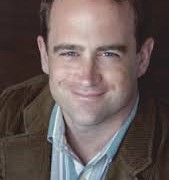From January 1, 2015, it is the law in the US that airlines are obliged to take small musical instruments – including violins and guitars on board. They must also allow musicians to purchase an available seat for larger instruments. The obligation is listed in section 403 of the FAA Reauthorization Act of 2012. You can read the announcement here.
Print out this announcement and show it to any airline staff who try to impede your legal rights. If they refuse to let you board the instrument, show them the small print of the law, available here as a pdf, or spelled out below.
Carry these documents with you whenever you fly in or to the USA.

SEC. 403. MUSICAL INSTRUMENTS.
(a) IN GENERAL.—Subchapter I of chapter 417 is amended by adding at the end the following:
‘‘§ 41724. Musical instruments
‘‘(a) IN GENERAL.—
‘‘(1) SMALL INSTRUMENTS AS CARRY-ON BAGGAGE.—An air carrier providing air transportation shall permit a passenger to carry a violin, guitar, or other musical instrument in the aircraft cabin, without charging the passenger a fee in addition to any standard fee that carrier may require for comparable carry-on baggage, if—
‘‘(A) the instrument can be stowed safely in a suitable baggage compartment in the aircraft cabin or under a passenger seat, in accordance with the requirements for carriage of carry-on baggage or cargo established by the Administrator; and
‘‘(B) there is space for such stowage at the time the passenger boards the aircraft.
‘‘(2) LARGER INSTRUMENTS AS CARRY-ON BAGGAGE.—An air carrier providing air transportation shall permit a passenger to carry a musical instrument that is too large to meet the requirements of paragraph (1) in the aircraft cabin, without charging the passenger a fee in addition to the cost of the additional ticket described in subparagraph (E), if—
‘‘(A) the instrument is contained in a case or covered so as to avoid injury to other passengers;
‘‘(B) the weight of the instrument, including the case or covering, does not exceed 165 pounds or the applicable weight restrictions for the aircraft;
‘‘(C) the instrument can be stowed in accordance with the requirements for carriage of carry-on baggage or cargo established by the Administrator;
‘‘(D) neither the instrument nor the case contains any object not otherwise permitted to be carried in an aircraft cabin because of a law or regulation of the United States; and
‘‘(E) the passenger wishing to carry the instrument in the aircraft cabin has purchased an additional seat to accommodate the instrument.
‘‘(3) LARGE INSTRUMENTS AS CHECKED BAGGAGE.—An air carrier shall transport as baggage a musical instrument that is the property of a passenger traveling in air transportation that may not be carried in the aircraft cabin if—
‘‘(A) the sum of the length, width, and height measured in inches of the outside linear dimensions of the instrument (including the case) does not exceed 150 inches or the applicable size restrictions for the aircraft;
‘‘(B) the weight of the instrument does not exceed 165 pounds or the applicable weight restrictions for the aircraft; and
‘‘(C) the instrument can be stowed in accordance with the requirements for carriage of carry-on baggage or cargo established by the Administrator.
‘‘(b) REGULATIONS.—Not later than 2 years after the date of enactment of this section, the Secretary shall issue final regulations to carry out subsection (a).
‘‘(c) EFFECTIVE DATE.—The requirements of this section shall become effective on the date of issuance of the final regulations under subsection (b).’’.
(b) CONFORMING AMENDMENT.—The analysis for such sub-chapter is amended by adding at the end the following:
‘‘41724. Musical instruments.’’.
h/t: Andres Cardenes
‘Pray for me,’ messages Terrence Wilson, a concert pianist and former Verbier assistant, after fire gutted his Montclair, New Jersey, apartment block.
Terrence has lost his piano and most of his possessions, including a Grammy nomination certificate.
Offers of help are trickling in. If you know Terrence, send some solidarity to his facebook page.

The region’s murky politics are often inseparable from culture.
The I, Culture Orchestra – which brings together 94 musicians aged 18-28 from Poland, Ukraine, Belarus, Georgia, Azerbaijan, Moldova and Armenia – will play Beethoven’s Ode to Joy in Kiev’s Maidan Square on August 24.
That’s bound to please the Russians.

I, Culture is based in Warsaw.
The conductor is Kirill Karabits, a Ukrainian.
We are very sorry to learn that the outstanding German baritone Johannes Martin Kränzle has cancelled his 2015 season after being diagnosed with bone marrow disease. He is awaiting a stem-cell transplant.
Johannes, 52, a member of the of the Frankfurt Opera since 1998, has sung major roles at La Scala, Munich, Berlin, Glyndebourne and San Francisco.
We publish his announcement below and urge all readers to register as possible bone marrow donors.

Dear friends,
I have been diagnosed with a bone marrow disease: MDS (Myelodysplasia).
The only chance of cure is a stem cell transplantation. This procedure will be demanding all my strength and patience, and I will have to give time to overcoming this disease.
Therefore I will take a rest for the season 2015/16.
I would like to encourage you to register as a donor at the National Bone Marrow Donor Program. To be a potential donor means only to give a saliva sample, and in case of a match, usually to donate blood.
www.bmdw.org
Liebe Freunde,
ganz überraschend ist bei mir MDS , eine akute Knochenmarkerkrankung, diagnostiziert worden. (Myelodysplasisches Syndrom)
( www.mds-patienten-ig.org/myelodysplastische-syndrome )
Die einzige Heilungschance ist eine Stammzelltransplantation. Dieser Eingriff wird meine ganze Kraft und Geduld fordern, und ich werde der Überwindung dieser Krankheit Zeit und Raum geben.
Die Spielzeit 2015/16 werde ich deswegen pausieren müssen.
Sehr ermutigen möchte ich alle, sich als Spender bei der Knochenmarkspenderdatei registieren zu lassen. Spender sein bedeutet, erst eine Speichelprobe abzugeben und im Fall, dann ein Leben retten zu können, meist eine intensive Blutspende.
www.dkms.de
The knock-on effects of Oliver Knussen’s visa denial are becoming ever more dramatic.
Act One: Ollie, booked five months ago to conduct a Gunther Schuller tribute, gets snarled in the US visa system and has to cancel at two days notice.
Act Two: Modernist concert is split up between two resident young Brits, Jonathan Berman and Stefan Asbury. Stefan got landed with Elliott Carter’s extremely difficult A Sunbeam’s Architecture.
Act Three: On the night, Stefan pulls out of both the pre-concert talk and the concert itself. Turns out his wife his having a baby (a boy, congrats all round). So Jonathan steps up and conducts the whole show, never having rehearsed the Carter.
Act Four; He’s been asked to replace Stefan again today (Sunday).

First review:
“Jonathan Berman conducted all five of the large works, a heroic feat. The evening lacked two of its scheduled conductors. Oliver Knussen, who co-curated the FCM with John Harbison and Michael Gandolfi, will apparently not be making it to the Festival at all because of “visa problems.” He had been engaged to conduct both Schuller pieces and the Maderna. Stefan Asbury was also unavailable; at the preconcert talk it was disclosed the reason was the impending birth of his child, and by the opening of the concert we learned they had a boy. He was to conduct A Sunbeam’s Architecture. Jonathan Berman, a young English conductor with a sizable contemporary-music résumé, was scheduled to conduct only Megalith, but somehow managed to step in for all five works and did a spectacular job, his performances confident and shapely and alive. There may have been some tentative ensemble moments in the Carter, but the achievement was impressive. Berman was assisted by the astonishing level of accomplishment from the TMC Fellows, whose ability to play difficult scores together is one of the abiding wonders of the FMC.”

From a drinking pal in Finland (where else?)

Jack Kohl, a New York based music director, has written his first novel, That Iron String(Pauktaug Press). It’s about a couple of pianists in New York, trying against all odds to make a go of it.
Interviewed by our colleague Michael Johnson, Jack has this to say about the concert business:

Aren’t we witnessing a lemming-like stampede? Aren’t Asian conservatories training thousands of talented youngsters, most of them aiming for careers in the U.S. and Europe?
Yes, the throngs of pianists keep coming, and throngs of really good ones. I do not believe the next generation will be the last in classical music. The music will survive because of its greatness. But the medium of the large concert put in place with, say, Mendelssohn and Liszt — and the re-creative artist as window on the imagined intentions of the composers — perhaps must, perhaps should, play itself out.
Look ahead 30 or 40 years. What might replace current classical music performance traditions?
I think the re-creative artist will eventually have to remerge as a creative artist. We cannot forever be textual slaves and hope to remain relevant in a glutted market. I don’t know where the new music will come from. But I know it will emerge and join a place with the canon — and it will be something that will be loved.
Are young artists already starting to rebel?
Indeed. What young, thinking mind can long honor the mantras and standards that are put forth by the conservatory and university if the ideal of the re-creative artist is principally, if we are really honest, simply playing as cleanly as possible from a page of score written by someone centuries ago? Everyone attempts to cite all sorts of flaws to the present system – but this simple and monstrous flaw stares everyone in the face and no one speaks of it. It’s repetitive music-making.
Click here for more.
Two German media sites, Bild and Speigel, reported that the Chancellor fainted at a coffee bar in Bayreuth.
They later printed a government statement saying it was nothing of the sort. Her chair was faulty and collapsed. The Chancellor went on to watch Tristan und Isolde, which she said she enjoyed.
Our correspondent saw her at the opera and says she looked ‘totally fit’. A colleague who saw her during the coffee incident says the media blew it out of all proportion.
Nothing much else to report from the opening weekend.










